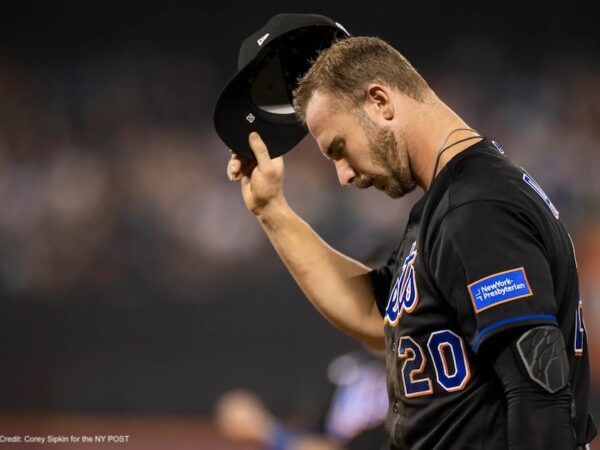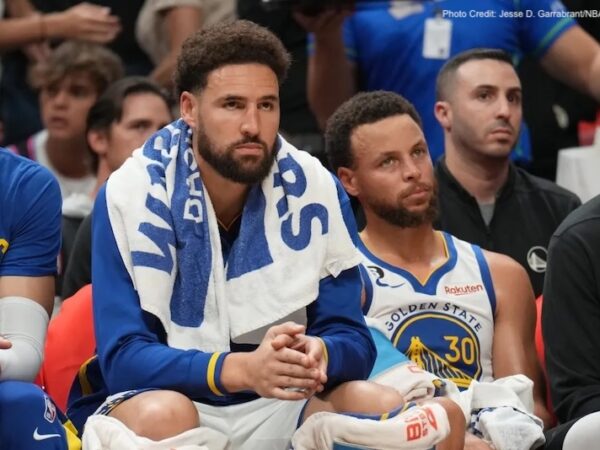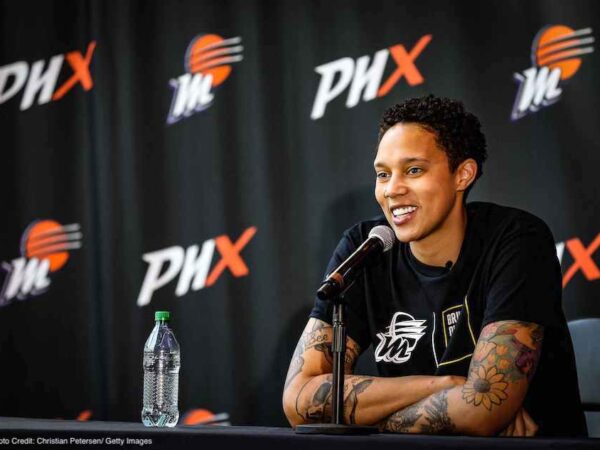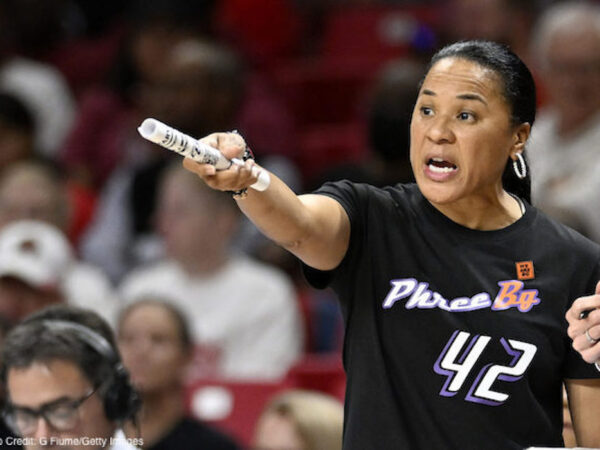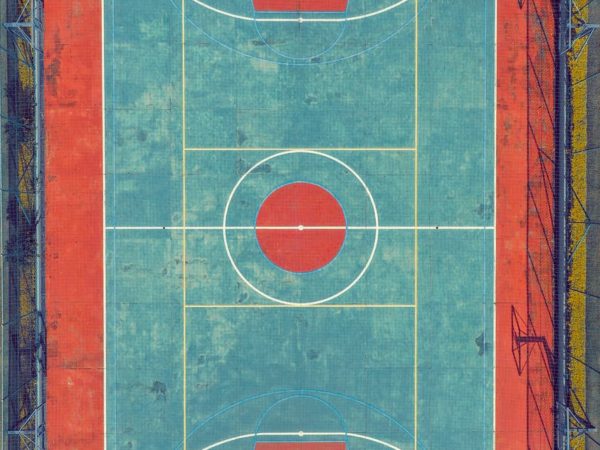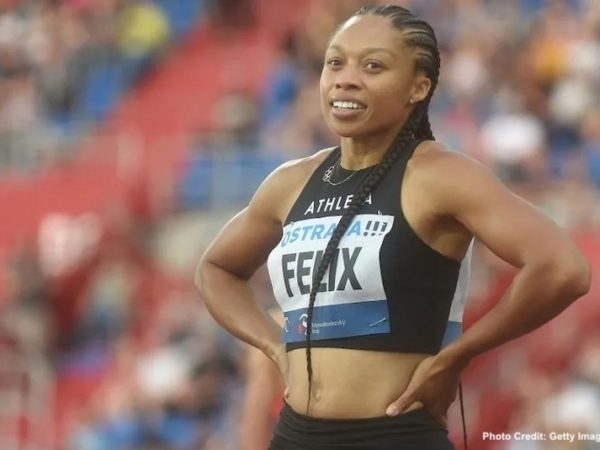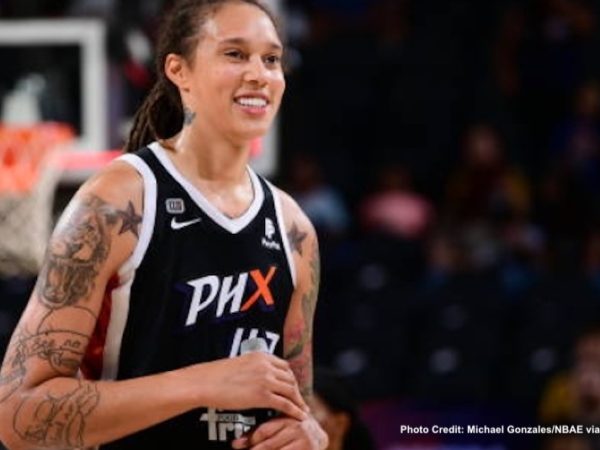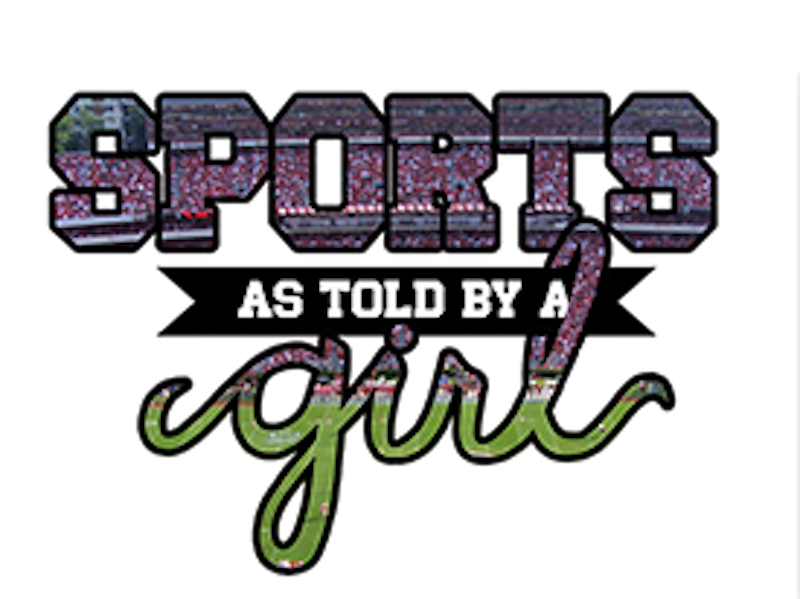Many things about that Lakers 2010 championship run was notable, but the postgame interview by one Ron Artest (also known as Metta World Peace) was particularly memorable. He stood in front of his family, his smile spread from ear to ear, and his voice hoarse from celebration. Artest responded to the media’s questions about Kobe Bryant trusting him to take big shots in big moments. What came after, though, was interesting.
“…I gotta thank my doctor, Dr. Santhi (psychiatrist), she would come and help me in these moments…because I’m not good in these moments…and I needed help finding ways to relax”, he told ABC’s Doris Burke.
Mental illness is the invisible elephant in the room. We know it’s there, but we get uncomfortable talking about it. Over the years, we have gotten better at acknowledging the importance of mental health, though there is more work to do. Other athletes across multiple sports leagues have spoken out about their personal struggles with such issues.
- Renowned Olympian Swimmer Michael Phelps talked about depression and suicidality
- NBA logo Jerry West discussed struggles with self-esteem and depression
- New York Giants’ Brandon Marshall spoke out on his diagnosis of Borderline Personality Disorder
- WNBA star & sister of NBA player JaVale McGee, Imani Boyette spoke out about her own suicidal thoughts and depression
- Tennis star Mardy Fish spoke about suffering from severe bouts of anxiety
The discussion has recently picked up steam in the basketball world. It all started with DeMar DeRozan. The Toronto superstar sent out a tweet during NBA All-star weekend a few weeks ago, acknowledging his struggle with depression. DeRozan’s page was quickly inundated with messages of support and well wishes from fans as well as his peers in the league.
“My mom always told me: Never make fun of anybody because you never know what that person is going through.”
As a well-known, well-paid athlete, it’s easy to assume that someone like DeMar has no reason to be unhappy. But as his mother noted, everything is not as it seems. DeMar DeRozan let people know that things were not okay, and the ripple effect has been far-reaching.
Cleveland Cavaliers’ star Kevin Love took solace in DeRozan’s words and decided to pen an article in The Player’s Tribune about his own mental health. If you have not read it, I suggest you do. The article is heartbreakingly honest, vulnerable, comforting, and incredibly important.
Love details a panic attack that he experienced during a game vs. the Atlanta Hawks in early November. He talks about how growing up, he only knew how to deal with things one way- by himself.
“I thought about mental health as someone else’s problem…I know I could have benefitted from having someone to talk to over the years.”
A study done by the NCAA presented results that proved KLove’s feelings about being the only athlete struggling with these things was not true. They found that 1 in 4 college athletes have been depressed and that suicide is the 3rd leading cause of death in student athletes. 50% of these college athletes have also reported high anxiety. In the general public, the National Alliance on Mental Illness (NAMI) notes that1 in 5 adults in the U.S. suffers from at least one mental illness (about 43.8 million people), while only 41% of those adults sought help (with African-Americans & Hispanics only utilizing these services half as much as Asian Americans or White Caucasians).
Intersectionality is seeing people who look like you in every field, and in every occupation. Sports cannot be treated as its own little bubble. DeMar DeRozan’s words inspired Kevin Love to speak out and be the change.
These words touched the heart of another young player, Kelly Oubre Jr. The Washington Wizards’ rising star felt impressed to discuss the pressure athlete have to perform a such a public stage.
“People see us as superheroes…we go through issues normal people go through, times ten.”
For Oubre Jr., his anchor when things are crumbling seems to be his father. “I just love him because he’s there and he just wants to see me be great”, Oubre said. Kevin Love might say that basketball has been his escape and source of comfort. At the end of the day, everyone is going through something. It’s okay to not be okay, and its important that we start creating safe places to express that.
What’s great about these stories was that neither of them tried to advise anyone on how to conquer their anxiety or depression. They simply said, “hey, sometimes I struggle. Certain things make it better, certain things don’t.” And to anyone who resonates with that feeling there’s no perfect response. Saying something like this may help, “I may not fully understand what you are going through, but I’d like to struggle through it with you because you are not alone.”
Kevin Love talked about how therapy helped him personally, but how it is not a magical fix to all your problems. Mental health is a journey, not a destination- one that does not have to be a solo one. It is leaning into the highs of life, but also the lows. It’s sharing, because there is strength in numbers, and encouraging one another. Mental health is remembering that even the athletes, celebrities or people we see on television have the very same struggles we do because they are human. So let’s keep the conversation going. Let’s keep speaking out, admitting we don’t know or asking for help. And a very special thank you to DeRozan, Love, Oubre, & Artest for being brave and helping shine that light on an area that deserves much more attention.


